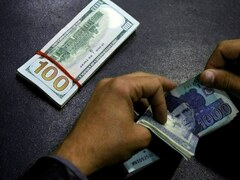Briefing the National Assembly Standing Committee on Power on the performance of power sector, its financial position, and other issues, federal secretary for power stated that: “If any sector that will sink the country’s economy it is the power sector, as the volume of subsidy is 12 percent of total budget, which is higher than the defence budget and annual development budget. The sector lost Rs 1.072 trillion in just one year and with earmarked subsidy added, the sector is the biggest loss-making government institution and is functional only on account of Finance Ministry’s extraordinary support”.
This is a rather strong statement, reflecting deep anguish, frustration and helplessness of a top official who is actually in charge of this sector’s matters. Last year, Rs 2.892 trillion was spent on electricity production whereas the government received only Rs 1.535 trillion; these figures show a shortfall of Rs 1.351 trillion.
Many stalwarts in successive governments have tried to narrow the gap through a carrot and stick policy combined with cosmetic and politically motivated reforms but none has worked because none of them ever took the pain to find out the underlying causes through a forensic audit of the whole supply chain of the power sector to unearth the fault lines so that probable solutions, starting from fuel procurement to supply of electricity at the door step of the consumer and then the very conduct of the consumer itself, could have been found.
There are serious fault lines in the sector — all of which leading to a circular debt of Rs 2.253 trillion as of June 30, 2022 of which the amount of payables to power producers is of Rs 1.351 trillion and Gencos’ payables to fuel suppliers stand at Rs 101 billion. The payables to the fuel suppliers have crippled some of the prime oil entities of the country, notably, Pakistan State Oil (PSO). PSO, once a blue chip company counted among 500 Fortune companies of the world, is now almost bankrupt.
The prevailing phenomenal increase in generation cost, which includes higher prices of imported fuels, notably the LNG, and capacity payments to power producers by passing this increase in fuel prices on to consumers has further increased the share of subsidy and will exponentially increase the circular debt further threatening the country’s economy.
The view expressed by the secretary is a reality and behind this reality is a long trail of corruption in each and every segment of the sector. While accountability in the country is a sham process and the one with influence and money can wriggle out of it with the perpetrator of the offence rejuvenated to strike once again. However, the damage inflicted on the national economy on account of rampant corruption along the whole supply chain of the power sector is unforgivable and must not be ignored.
It has deprived the government of its rightful revenue. It has crippled the state industry with high tariffs and long outages. And, it has brought our prime entities in the oil sector to bankruptcy.
The tariffs, notably for low income groups and small industry and shops, are carving out over 30 % of their meagre earning. Above all, it has positioned Pakistan perpetually dependent on the IMF (International Monetary Fund).
The payables to power producers are of Rs 1.351 trillion. Many of them are now shut due to cash flow crunch to procure fuel. The government continues to make capacity payments to idle IPPs (Independent Power Producers).
The problems in the power sector commenced from the early 90s with the induction of IPPs based on imported fuel into the generation system. Each government since the 90s exploited this policy. Someone must start the accountability from this point, although in the prevailing scenario the probability of such accountability is extremely low.
Copyright Business Recorder, 2022
The writer is a former President of Overseas Investors Chamber of Commerce and Industry (OICCI)























Comments
Comments are closed.